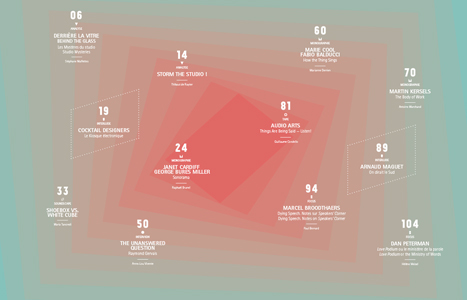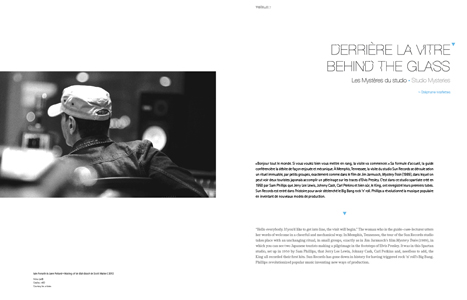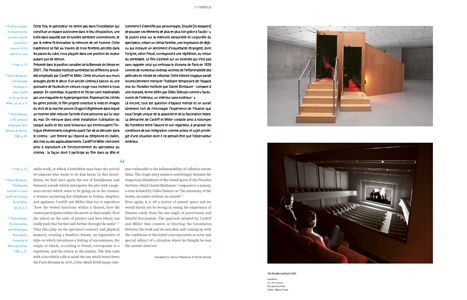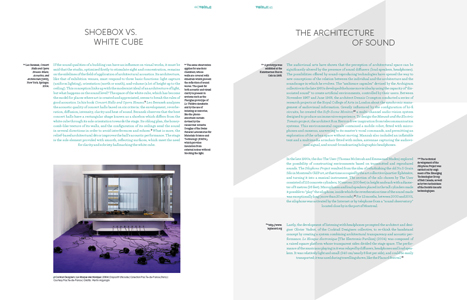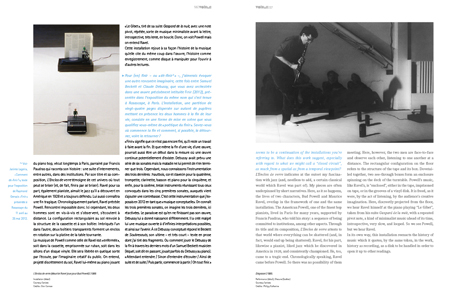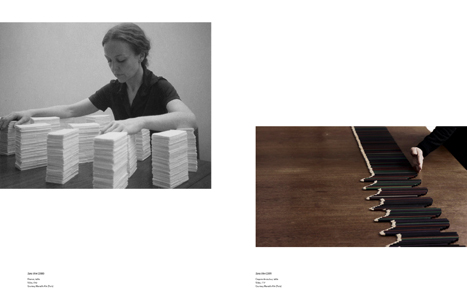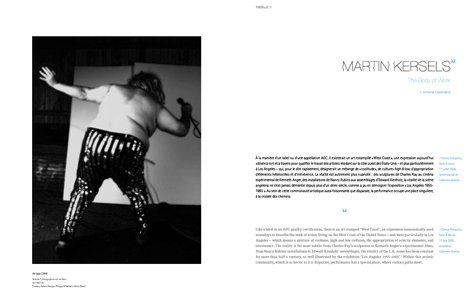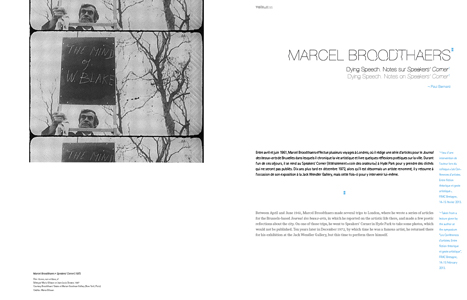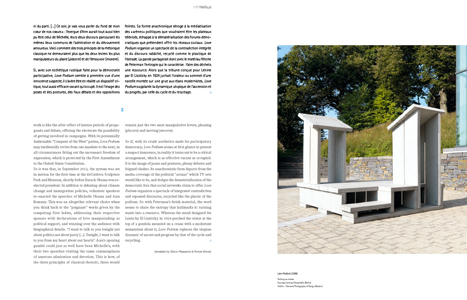
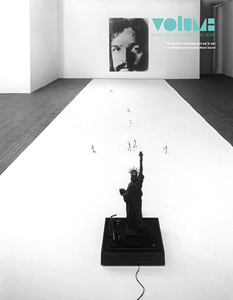
Sound, which is intrinsically connected with its context of diffusion and
propagation – whether this has to do with the architectural project,
the enclosed space, interior (literally and figuratively), exterior and/or
public –, defines flexible production areas, within which a set of
more or less creative and pre-meditated interventions develops.
In spite of their relative de-materialization over time, both the recording
studio and the artist's studio today still appear like the archetypes of
places removed from the world, apt for introspection and the expression of a
sensibility capable of being captured and fixed in a medium. The stage, for
its part, permits (re)presentation, in principle in public, of speeches,
actions and performances which can furthermore temporarily exist in standard
formats and limited surfaces, maquettes and scale models. In suggesting a
potential activation, past or in the offing, these “zones”
function as units of measurement, scores and pitches in which it is
sometimes possible to enter and move about. The result is effects of scale
and overlap, even of endless duplication, especially through the
establishment of autonomous spaces actually within the exhibition venue,
thus giving visitors the impression of evolving inside a box within a box.
In addition, the progress of sound production and diffusion techniques has
encouraged the emergence and development of a “listening in
motion”, a now nomadic content accompanying the listener and mixing
with his environment. By way of structures like the podium, the platform,
and Speakers' Corner, the public place offers the possibility of giving free
rein to words, with the diversity of viewpoints, including the most radical
and offbeat, enjoying full entitlement – at least in theory.
These different motifs trace the outlines of a whole host of soundscapes
which, jammed and “augmented” by often random exogenous
phenomena, are part of our perception of reality and everyday life.
Volume –
What You See Is What You Hear is the first magazine devoted to
sound issues in art, and to the complex relationships between visual and sound forms, both in contemporary art and history.
Volume is neither a musical magazine, nor a magazine about sound art; rather, it sees sound from the angle of
the visual arts.
The history of relations between sound and art is not recent, but the past few years have seen
many more works, exhibitions, publications and other events whose aesthetic and theoretical content attests to a
growing interest in this medium, and the various ways it is used. Through a broad range of critical and artistic
contributions, it is
Volume's intent to represent a platform observing and analyzing this dynamic, while at the
same time being sure to re-position it within a historical perspective.
The seven issues published between 2010 and 2013 now constitute a concluded series.



